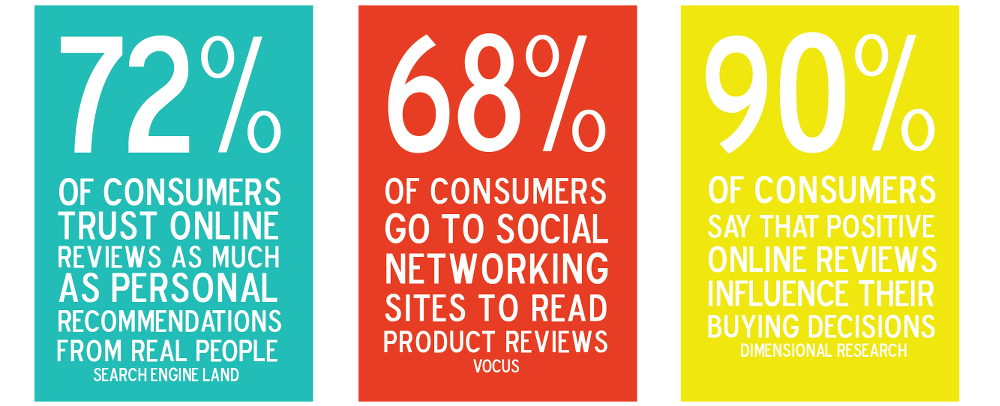Patients are more in control of the patient-doctor relationship than ever before.
The proliferation of review sites, including numerous sites dedicated to reviewing doctors and medical practices, allows patients to act as consumers.
Patients are going online to do comparison shopping for doctors and healthcare providers, just like they do for a hotel or restaurant – as if they were walking down the aisle of a supermarket.
Managing your healthcare practice’s online reviews is a critical part of your reputation management.
Nearly half of patients using medical review sites would see an out-of-network doctor who had better reviews than one in their plan.
Online Medical Practice Reviews – Ignore Them at Your Peril
According to a 2014 study on patient use of medical practice review sites, 42% of respondents said they consult such sites.
Most importantly, that’s a 68% increase over the number of people who visited such sites the previous year.
Of those who use the review sites, 49% would be willing to see an out-of-network doctor who had better reviews than one in their plan.
Millennials are particularly plugged in to online discussions of their health care experiences.
If they’re a key demographic of your target patient persona, you’re either ahead of the curve in managing your online reputation or you’re losing out to those who are.
Nearly half of patients using medical review sites would see an out-of-network doctor who had better reviews than one in their plan.
The lesson here is that authentic patient ratings and reviews are some of the most compelling marketing content available to practices. They have great potential to influence whether new patients schedule appointments with you, or decide to visit someone else with better reviews.
There Is No Neutral on Review Sites
Ignoring review sites isn’t an option.
First, many review sites – especially large ones like Yelp or Google My Business – will have a page for your medical practice, even if you don’t claim it.
That means, people can leave reviews about you and your healthcare practice without your participation in the review process.
Second, if you aren’t managing your online review reputation, other healthcare practices are. And these are the ones you’re losing business to.
BrightLocal’s 2015 Local Consumer Review Survey found that only 14% of those reading reviews would visit a business with fewer than 3 stars.
So if you’re not getting reviews and earning stars, you’re losing out to the surgical practices that are.
Review Sites Also Impact Search Rankings
Major search and doctor review sites are starting to assign more weight to these online ratings and reviews than ever before.
For example, Google ramped up its local ratings and reviews starting in 2013 when it launched “City Experts” to help grow hyperlocal content for Google+.
Activity on a review site is assumed to be local content, which search engines want to provide to local searchers. Search engines also love pages that get updated regularly on your practice’s review translates into highly relevant content for local search consumers.
As a result, Google gives online reviews significant weight in local search results because it wants to give searchers the information that’s most important to them.
Getting Positive Reviews
The best way to leverage this increased focus on patient feedback and scoring is simple – get more of your patients to leave positive reviews about your practice. Ask them to write reviews by:
- Immediate Rewiew with Tablet: Ask in the office and use an iPad or tablet that allows patients to leave the review immediately
- Email Follow-up: Sending emails to patients that have recently had an appointment. Current reviews have much greater impact than old reviews.
- One-Click Button: Adding a one-click review button on your practice website.
Don’t try to game the system.
Review sites are on to that and have back-end algorithms that ferret out fake reviews. One way is by flagging accounts whose reviews are submitted from the same physical location. So don’t ask people in your office to just start posting reviews; they will be flagged.
Managing Negative Reviews
Nobody wants a negative review. Unfortunately, they are an inevitable aspect of doing business in today’s online environment. Don’t sweat a negative review. Don’t ignore it, but don’t sweat it.
The best approach is the simplest.
Recognize the reviewer’s complaint and respond that you “always strive to provide the best care possible given the situation. I’d be happy to discuss this further in person or over the phone so that we can better serve you and our other patients in the future.”
Then follow up with a negative reviewer either privately or publicly. See how you can address their concerns with the goal is to turn their negative review into a positive one.
Most review sites let reviewers amend their or reviews. At the very least, they can post an update.
NEVER, EVER, EVER, EVER, reveal patient information when responding to positive or negative reviews. Revealing patient health information without their explicit consent is a HIPAA violation.
Also, negative reviews with curse words, or that are clearly irrelevant or written by the unhinged can be flagged as “inappropriate.” Review sites have differing standards and processes for handling abusive content, but they all have some options.
Online Review Site Checklist
Ready to take control of your medical practice’s online reputation? Here’s a checklist to get you started.
- Audit: Audit your practice’s search engine and review site listings
- Claim: Claim each of your practice’s search engine and review site listings and update them with current information
- Monitor: Regularly monitor each review site listing for new reviews; you can set up automated alerts to do this
- Implement: Implement a patient review/feedback loop via email that encourages positive reviews and provides a fast opportunity for you to respond to negative reviews
If you need help at any step along the way, contact us by getting a practice marketing check-up.





